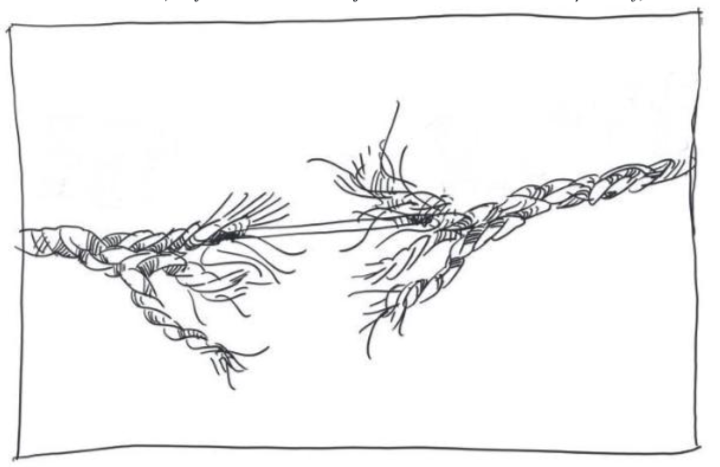
(anthropologist)
The global academia and scholars today are moving towards more critical and reflexive ruminations within and outside their disciplines. The idea of exploring discontinuities and breaks rather than the teleological approach is now gaining currency around the world. We are now entering a postcolonial and postmodern world.
In this context we, Mauritians and scholars researching on Mauritius, need to reexamine, deconstruct and displace ‘epistemic’ truths that lie embedded in colonial discourses. There is a vast literature within the postcolonial scholarship (Frantz Fanon, Edward Said, Samir Amin, Benedict Anderson, Syed Hussein Alatas, Gayatri Spivak, Dipesh Chakrabarty, Chinua Achebe) which critiques the ‘givens’ in the Eurocentric epistemes.
Much of the research conducted on Mauritius anchors within discourses that emerged from Eurocentric frameworks. So, for instance, the social and cultural phenomenon have been assessed through a European or an American theoretical yardstick leading to straightjacketing of empirical findings into ‘given’ theoretical cannons. This also leads to the formulation of static models that fail to capture ‘real time’ empirical details’. As Raewyn Connell suggests that the colonised world needs to readjust its frame of reference (worldviews) by questioning the colonial views and revisiting indigenous possibilities, scholarship in Mauritius needs to reorient itself to comprehend the disparate sociabilities.
As Bourdieu clarifies: « Every established order (in this case colonial episteme) tends to produce (to very different degrees and with different means) the naturalisation of its own arbitrariness. Of all the mechanisms tending to produce this effect, the most important and the best concealed is undoubtedly the dialectic of the objective chances and the agents’ aspirations, out of which arises the sense of limits, commonly called the sense of reality, i.e. the correspondence between the objective classes and the internalized classes, social structures and mental structures, which is the basis of the most ineradicable adherence to established order. »
Examining Mauritian society through indigenous conceptualisations and theorisations will enable the scholars to interpolate social realities in a better fashion. Just as in India indigenous theorizations began to take shape in its academia and civil society, Mauritius should also head that way.
For instance, Quigley argues that ‘caste’ in popular representations and social science discourse is understood to be based on three axioms – that the Hindu world is made up of castes, castes are closed social groups (endogamy, in this way the system is perpetuated ad infinitum) and that castes are hierarchically arranged on a purity-pollution scale (caste system). He finds this colonial definitions inadequate for empirical research and thus he states:
“Intensive historical and ethnographic investigations of caste-organized communities in India have repeatedly demonstrated that this three-line theory is at best inadequate, at worst wholly misleading. And yet it has remained remarkably resistant to attempts to modify it.”
Scholars such as G.S.Ghurye, M.N. Srinivas, Andre Beteille, Partha Chatterjee, T.K. Oommen, S.C. Dube among many others have shaped this project of decoloniality India. Much of this theorization is done through empirical-based research. Concepts such as ‘sanskritisation’, ‘westernisation’ , ‘modernisation’ ‘great and little traditions’ etc. were developed. Similarly innumerable village studies, tribal studies were carried out and new improvisations were made. A grounded theory approach was employed rather than an attempt to fit theoretical maps onto field experiences. Various ethnographic techniques such as participant observation, discourse analysis, life histories, documentation and narratives were recorded. An attempt was made to critically reinterpret world views through the eyes of the microcosm of society. This led to interrelating disparate and plural worldviews that challenged uniform and static interpretations of life worlds.
After all Mauritius is also part of the African continent and resonates its cultural and social patterns. It is not surprising to note that Africa contributed in its own way to the growth of the decolonial scholarship. Scholars such as Edward Said, Achille Mbembe, Chinua Achebe, Mahmood Mamdani have been questioning the hegemonic Eurocentric conceptualisations for some time. They have contended that the colonial epistemic baggage has led to construction of loaded narratives that in turn have shaped discourses that do not reflect the social reality.
A new decolonial scholarship should emerge in Mauritius that questions the Eurocentric theorisations and its research methods. This new methodology should address contemporary issues through the lens of ‘temporally’ and ‘spatially’ relevant schema and contexts. Scholars should contest the received colonial discourses and encourage indigenous models and schemas. In this endeavour critical and reflexive methodologies and theorisations have to be developed from the field experiences rather than foisting meta theories onto the everyday experiences and sociabilities of our life worlds.


